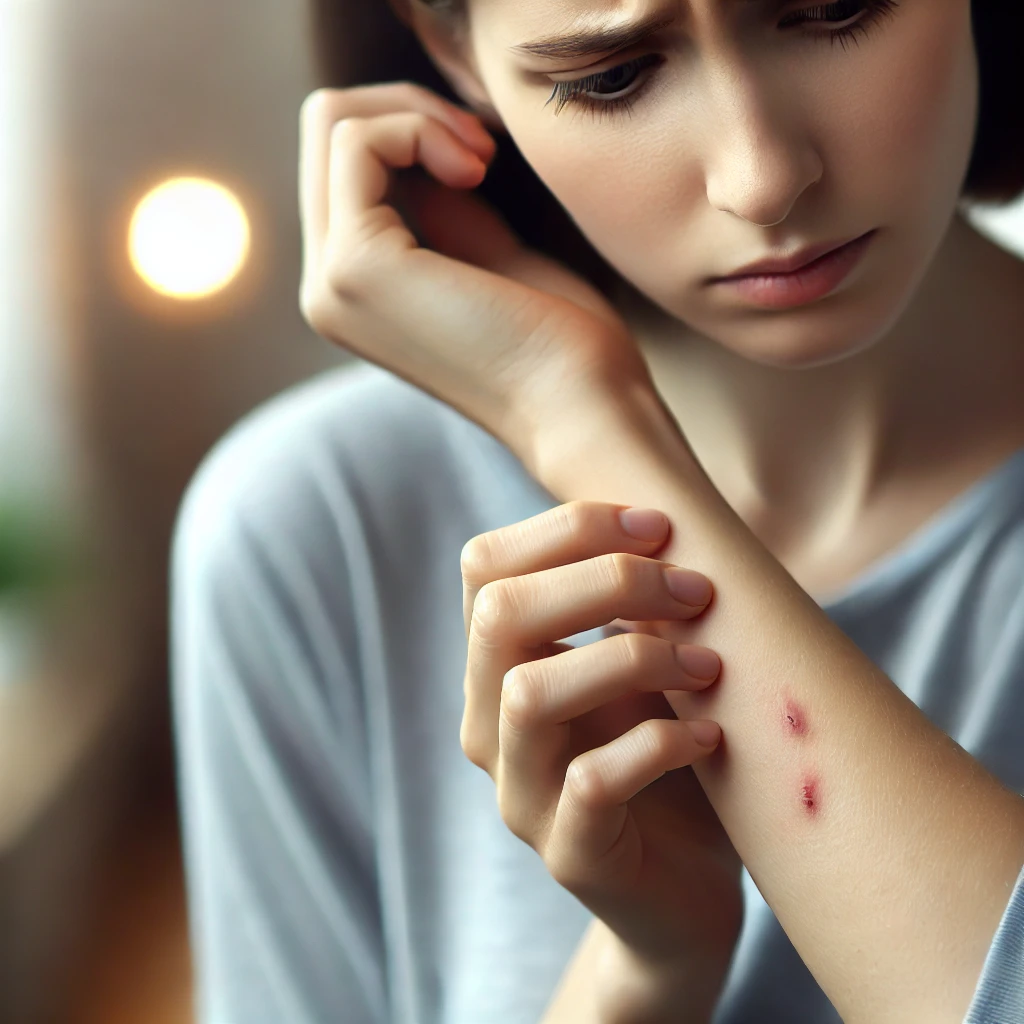Case Discussion

Case : My 75-year-old grandmother firmly believes that her hair and scalp are infested with insects and parasites. She constantly scratches and picks at her head, but despite multiple examinations, we have never found any evidence of infestation. We have consulted several doctors, including dermatologists and neurologists, and conducted various tests such as MRI and CT scans, all of which came back normal. When we ask her to show us the insects, she picks up something, but it turns out to be nothing. No matter how much we try to reassure her, she refuses to believe otherwise. She continues to scratch so persistently that, at times, her scalp starts to bleed.
This Condition is called delusional parasitosis (Ekbom syndrome), a psychiatric disorder in which a person has a fixed, false belief that they are infested with parasites, insects, or bugs, despite a complete lack of medical evidence. This condition can be extremely distressing for the individual and challenging for family members and caregivers.
Symptoms and Characteristics
1.Persistent Belief of Infestation
•The affected individual is convinced that insects, worms, or parasites are crawling on or under their skin.
•This belief remains despite reassurances from doctors and negative medical tests.
2.Tactile and Visual Hallucinations (Formication)
•Many patients experience formication, a sensation of crawling, biting, or stinging on the skin, leading them to scratch or pick at their body.
•In severe cases, visual hallucinations occur, where they actually “see” the parasites, even though others do not.
3.Skin Damage and Self-inflicted Wounds
•Due to excessive scratching, picking, or even using sharp objects to remove “parasites,” the patient often develops open sores, infections, or scarring.
4.“Proof” of Infestation (Matchbox Sign)
•Many patients try to collect and show “evidence” of the infestation, often bringing small pieces of skin, lint, hair, or dust, believing them to be insects.
•This is called the “matchbox sign” because, in older cases, people used to store these samples in matchboxes to present to doctors.
5.Resistance to Reassurance and Medical Proof
•Patients firmly reject medical explanations that there are no parasites.
•Even after dermatological and neurological evaluations, negative tests, and imaging (MRI, CT scan), they remain convinced of the infestation.
Possible Causes
Delusional parasitosis is classified as a delusional disorder, and its exact cause is not fully understood. However, it may be linked to:
•Primary Causes (Purely psychiatric)
•Schizophrenia, delusional disorder, or severe depression with psychotic features.
•Secondary Causes (Linked to medical conditions)
•Neurological disorders: Dementia, Parkinson’s disease, stroke.
•Substance use: Chronic use of stimulants (e.g., methamphetamine, cocaine) can cause similar symptoms.
•Vitamin deficiencies: B12 or folate deficiencies affecting the nervous system.
•Skin conditions: Some skin disorders can cause itching, leading to a misinterpretation as an infestation.
•Aging and cognitive decline: In older adults, underlying dementia or neurodegeneration can contribute to delusions.
Challenges in Treatment
One of the biggest obstacles in managing delusional parasitosis is that the patient lacks insight—meaning they do not believe they are ill. Convincing them that their belief is false can often make them defensive or even aggressive.
Treatment Options
1.Pharmacotherapy (Antipsychotics)
•First-line treatment: Second-generation (atypical) antipsychotics, such as risperidone, olanzapine, or aripiprazole, are preferred because they have fewer side effects than older drugs.
•Alternative: Pimozide was traditionally used, but newer antipsychotics are safer and better tolerated.
•Adjunct therapy: In some cases, antidepressants or anxiolytics may be needed if the patient also has depression or anxiety.
2.Psychotherapy (Insight-Oriented Therapy)
•Gently helping the patient explore their belief system and consider alternative explanations without direct confrontation.
•Cognitive Behavioral Therapy (CBT) may help, but success depends on the patient’s willingness to engage.
3.Supportive Care and Family Involvement
•Providing compassionate and non-confrontational support.
•Avoid arguing or directly challenging the delusion, as this can worsen resistance.
•Encouraging the patient to take medications subtly (some may accept medication for “itching” rather than for a psychiatric disorder).
Prognosis
With proper treatment, many patients experience improvement or even complete resolution of symptoms. However, relapse is common, especially if treatment is discontinued. Some cases remain chronic and difficult to manage.
Key Takeaways
•Delusional parasitosis is a fixed, false belief of infestation, often leading to self-inflicted wounds.
•Medical tests are always negative, but the patient remains convinced of infestation.
•Treatment is difficult because patients do not believe they need psychiatric help.
•Antipsychotic medications are the main treatment, often combined with supportive psychotherapy.
•Patience and empathy from family members are crucial in managing this condition.



Comments (0)